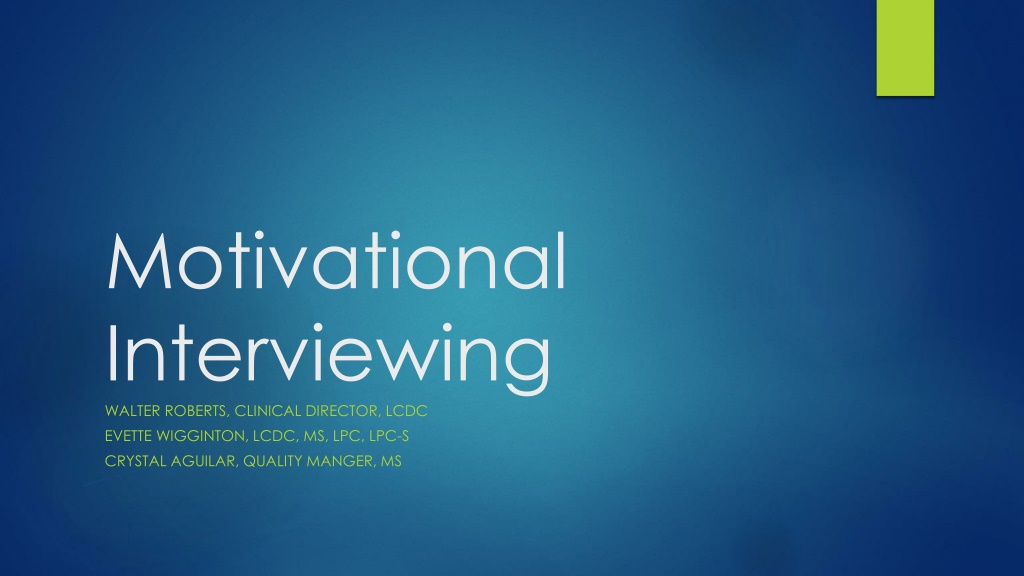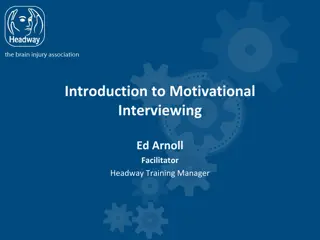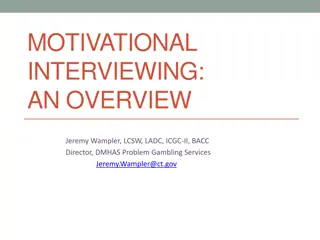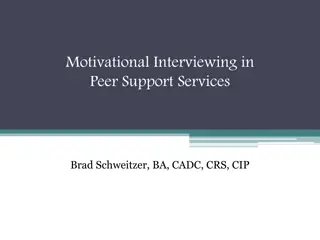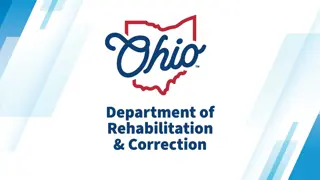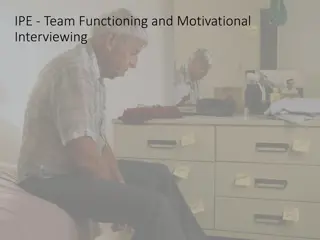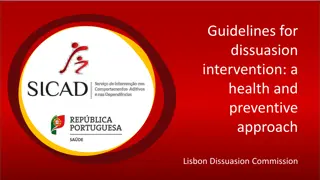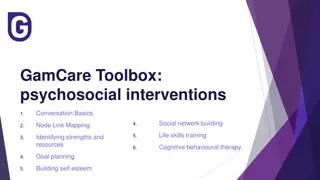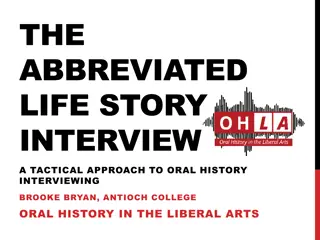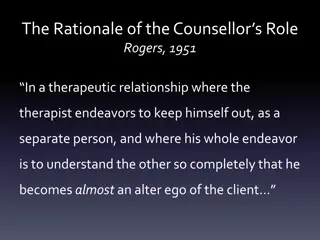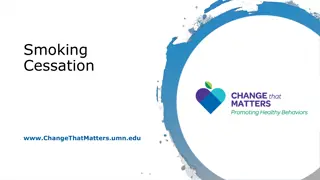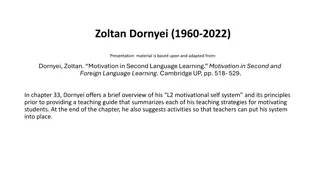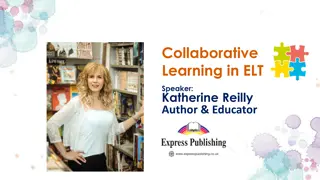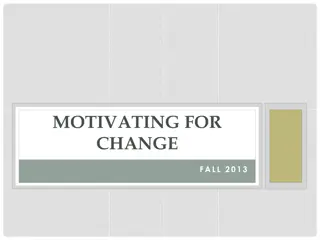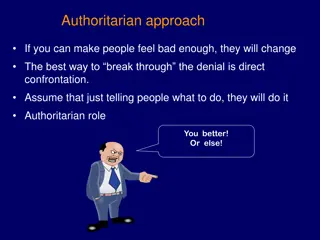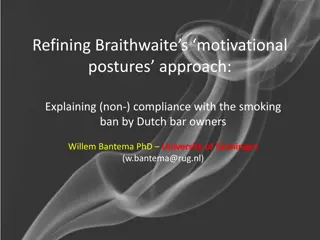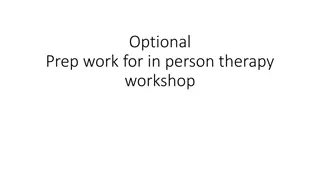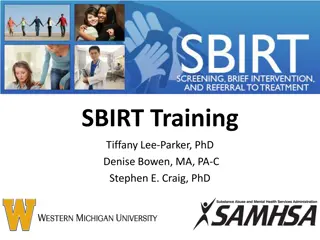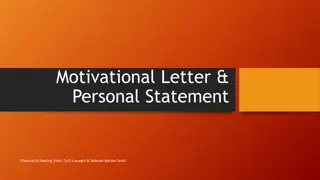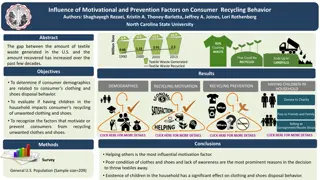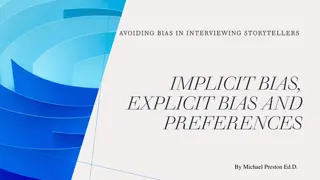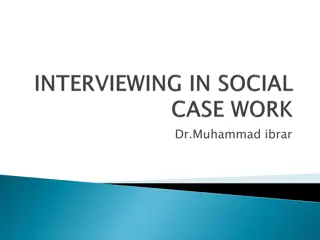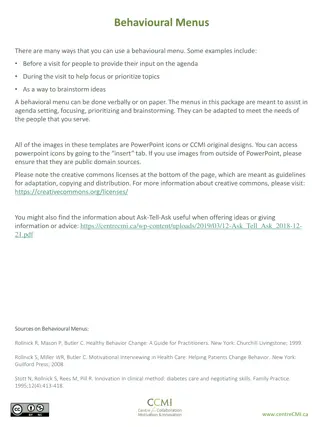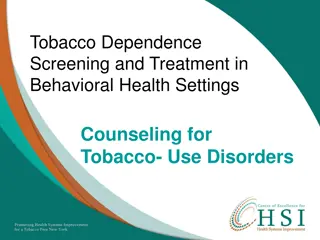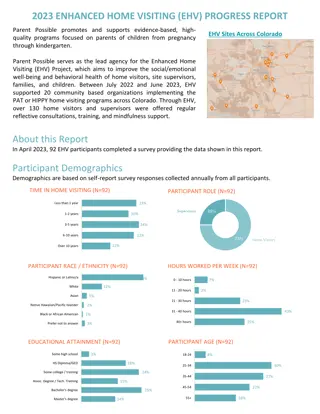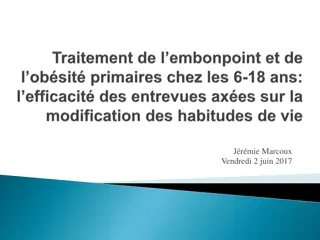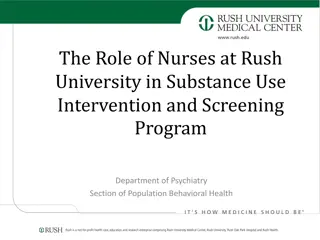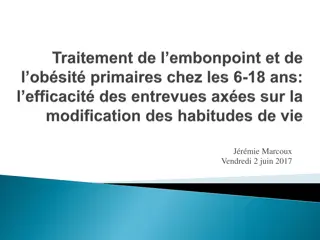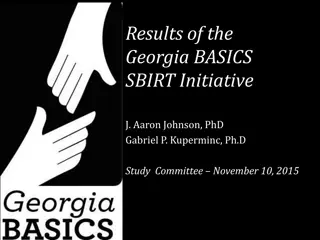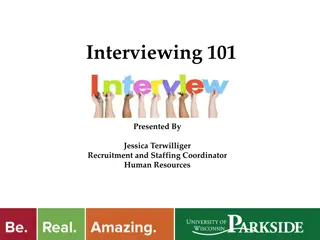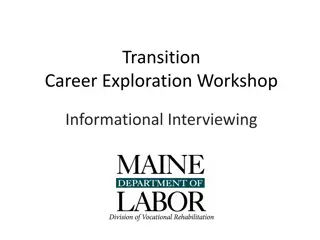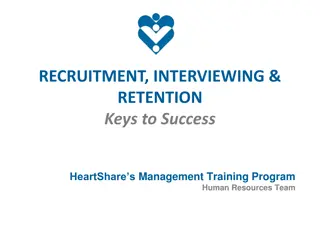Understanding Motivational Interviewing: A Collaborative Approach
Motivational interviewing is a person-centered method designed to enhance motivation for change by fostering collaboration. It involves engaging, focusing, evoking, and planning, while embodying the spirit of partnership, acceptance, evocation, and compassion. The approach shifts from taking responsibility for changing someone's behavior to supporting them in exploring their own reasons for change. Utilizing the OARS (Open-ended questions, Affirmations, Reflections, Summaries) listening style, including open-minded inquiry and affirmations, helps in motivating change. Affirmations serve as mental vitamins, balancing negative thoughts with positive reinforcement.
Uploaded on Oct 05, 2024 | 0 Views
Download Presentation

Please find below an Image/Link to download the presentation.
The content on the website is provided AS IS for your information and personal use only. It may not be sold, licensed, or shared on other websites without obtaining consent from the author. Download presentation by click this link. If you encounter any issues during the download, it is possible that the publisher has removed the file from their server.
E N D
Presentation Transcript
Motivational Interviewing WALTER ROBERTS, CLINICAL DIRECTOR, LCDC EVETTE WIGGINTON, LCDC, MS, LPC, LPC-S CRYSTAL AGUILAR, QUALITY MANGER, MS
Motivational interviewing Motivational interviewing is a collaborative , person centered approach. A guiding method designed to elicit and strengthen motivation for change.
You are the catalyst Walk the walk as a way to teach the talk Power of influence Visibility Teaching opportunity
Engaging, Focusing, Evoking, Planning
The spirit of Motivational interviewing. Partnership Acceptance Evocation Compassion
The Motivational Interview (MI) Shift From feeling responsible for changing another person s behavior . To supporting them in thinking and talking about their own reasons and means for behavior change
OARS Listening Style that motivates change Open minded inquiry Affirmations Reflections Summaries
Open Minded inquiry Allows the other person to tell their story, what is important to them Not filtered with our specific questions Asks for examples and elaboration How what .. Tell me more
AFFIRMATIONS: Supportive, testaments of character Genuine , direct reinforcements Demonstrates understanding
Affirmations are our mental vitamins providing the supplementary positive thoughts we need to balance the barrage of negative events and thoughts we experience daily . - Tia Walker
Attributes of successful changes Adapting Determined Eager Faithful Flexible Focused Forgiving Hopeful Ingenious Trusting Mature Patient Alert Persistent Reasonable Reliable Steady Strong Thorough Ambiguous Assertive Brave Careful Committed Considerate Creative Truthful
Mitigating weakness Tethering : Tie weakness to strength Sequencing : Knowing when you're at your best Sandwiching : putting your weakness between to energizing things Partnering: Finding someone for whom your weakness is their strength ( and vise versa)
Positive psychology : Prompting peoples positive health assets-strengths that can contribute to a healthier longer life -Seligman, M. et al, American Psychologist, 2005 Positive emotions Optimism Social community Meaning and Purpose Grit, Determination Gratitude.
Types of Reflections : Simple: Brief repeat of other person s words Complex -Rephrasing or adding words for description, emphasis -Observational : something noticed Meaning : Something inferred Continuing the paragraph.
Summarizing : Helps if conversation is stuck or unproductive Validating Collect, Link, Transition
Example summary : 1. Let me see if I've got what we've talked about so far 2. You're frustrated with the lack of progress on the work and you're concerned Abby is not doing her fair share 3. What have you considered doing next?
What are we especially listening for ? The persons own arguments for change !!!! Desire Ability Reasons Need Commitment Action Taking steps
Ambivalence: Change talk yes Sustain talk no
Engaging, Focusing, Evoking, Planning IS THE OTHER PERSON WITH YOU ? AND HOW DO YOU KNOW?
Strengths based questions to prompt change What would need to happen for you to want to make this change? (Desire) How would you approach it? (Ability) What are the three best reasons for you? (reason ) What's most important to you ? (Need) What could you do differently ? (commitment ) What might be the next step? (Action)
Close on good terms: Summarize the persons statements in favor of change Emphasize the person s strengths What agreement was reached?
Its MI when You are listening to understand the person s own perspective Have a clear focus on one or more change goals Actively evoking the person s own motivation for change
